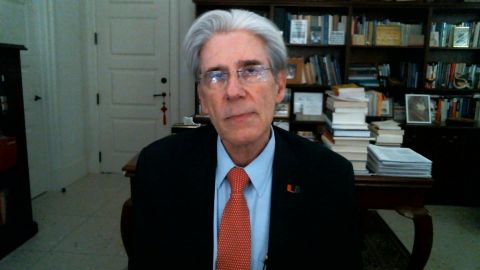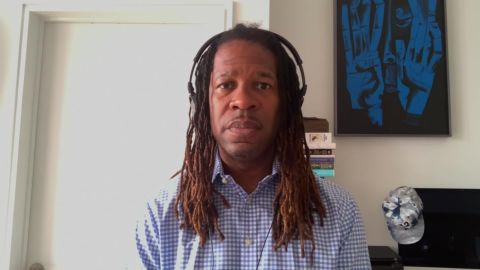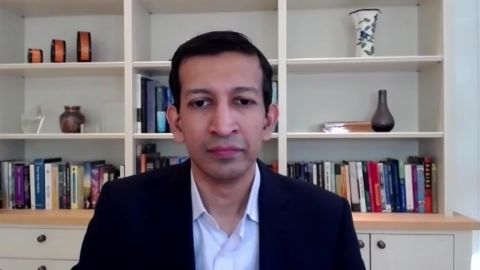Read Transcript EXPAND
CHRISTIANE AMANPOUR: So, I want to ask you, L.Z., because Colin Kaepernick is the sort of icon of this movement. And he was there four years ago, when he started this, taking a knee. And, of course, as we mentioned in the lead-up, the last really iconic American athletes were those at the 1968 Olympics. And Tommie Smith has been talking, saying he cannot believe that what he did all those decades again — ago, rather, still is necessary today. Just put it into context. And, of course, the great Muhammad Ali also put his career and his life and his reputation and his earnings on the line when he refused to support and go to Vietnam. Put that into context, if you like, in the sports world.
L.Z. GRANDERSON, LA TIMES COLUMNIST: Well, sports in general — I know people don’t like to think of it this way, but sports has always been used as a platform to make larger social issue sort of statements as well, whether it’s Jackie Robinson in ’47, whether it’s boycotting South Africa and its apartheid, whether it’s boycotting the Soviet Union’s presence in the Olympics because of the invasion of Afghanistan. Sports has always been utilized as a way to communicate a message, a military message, a political message, or multiple messages, indeed. And so some of these people that you refer to are simply following in the tradition of what sports has always been. But I will also add, too, it’s important that we talk about Peter Norman, who was the white man who was on the podium in 1968 in Mexico City as well. He also sided with fighting for criminal — fighting for justice, fighting for racial justice. He sided with that. And when he returned home to Australia, he too was ostracized. And that’s what’s needed. It’s not just a black issue. Racism isn’t something for black athletes to push across and try to get resolved. It’s an issue for everyone. And we also need Peter Normans of today, white athletes joining in with the black athletes, like a Colin Kaepernick, to put an end to this, as opposed to being complicit with their silence.
About This Episode EXPAND
Christiane speaks with former Mexican Health Minister Julio Frank about the rise of COVID cases in Latin America. She also speaks with LA Times sports columnist LZ Granderson about the history of racial justice activism in sports. Hari Sreenivasan speaks with economist Raj Chetty about new data on spending rates in the era of COVID.
LEARN MORE


